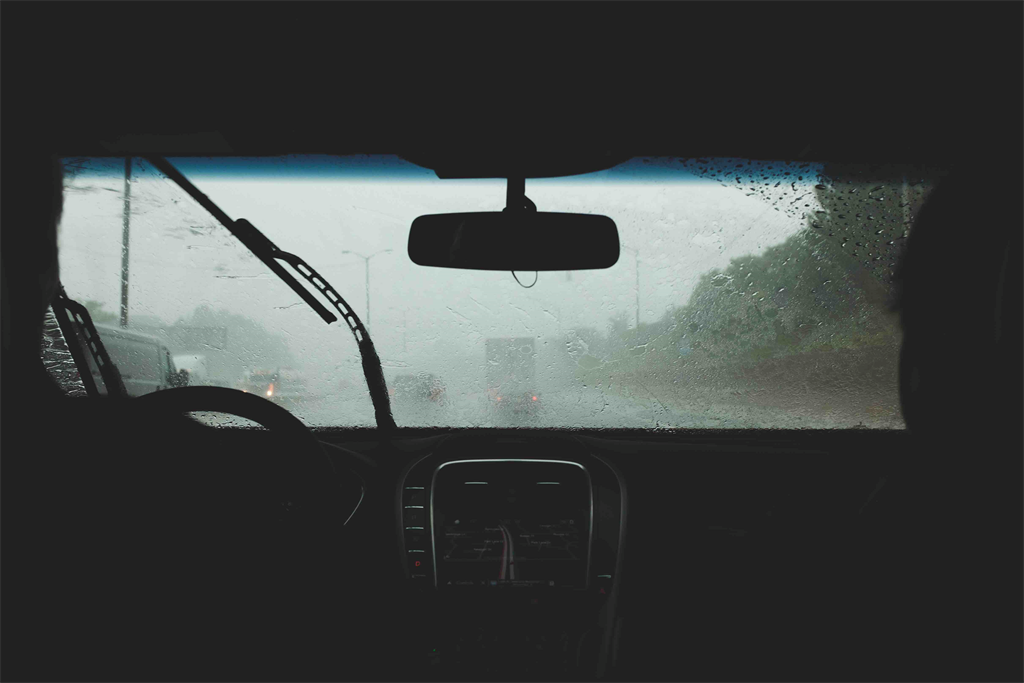The Seattle Personal Injury Blog
Posted Friday, July 19, 2019 by
Chris Thayer
 No one wants to think about the summertime being over, but it is nearly time for children to go back to school. Every child in the state of Washington is required to attend school; this requirement comes from both federal and state law. When you send your child to school, you expect that the school is looking out for the welfare and overall well-being of your child. This includes making sure that a child is safe, supervised appropriately, and otherwise being safeguarded from harm.
No one wants to think about the summertime being over, but it is nearly time for children to go back to school. Every child in the state of Washington is required to attend school; this requirement comes from both federal and state law. When you send your child to school, you expect that the school is looking out for the welfare and overall well-being of your child. This includes making sure that a child is safe, supervised appropriately, and otherwise being safeguarded from harm.
Children are not immune to injuries or accidents – especially if they are at school around their friends and play equipment. Accidents and injuries happen, but when an injury to a child occurs at school, parents should seek the advice of a personal injury attorney to determine what steps they should take to address the situation. If the school or staff was negligent in their duties to your child while at school, there may be potential to recover damages for injuries sustained.
A school’s duty to keep your child safe is not limited to school hours. If a child is part of extracurricular activities sponsored by the school, the school’s responsibility for safety also extends to these situations. However, there are certain instances when the school might not be responsible for a child’s injuries. An example of this is a parent signing a waiver of liability for the child to participate in a sport. If any waivers have been signed, it is important to keep a record because they could be important in a personal injury suit. The signing of a waiver does not necessarily preclude any recovery of damages for injuries, so it is important to bring it to your attorney’s attention as soon as possible.
Schools are required to abide by a variety of rules and regulations to keep your child and others safe:
- Safety planning: Schools are required to plan for safety or emergency situations. Emergency response systems, school mapping, emergency planning, and emergency preparedness are just a few ways in which schools must abide by the law to keep kids safe.
- Bullying: Schools are also subject to laws regarding bullying and keeping their school free of individuals who harass, intimidate, or injure other students.
Three are a variety of ways that schools demonstrate their compliance with federal and state laws to keep students safe. School districts are different in their approach to complying with various laws. The personal injury attorneys at Pivotal Law Group are here to help dissect these laws and the ways in which a school complies with them. If a school is not acting in accordance with the law or otherwise acting in a manner that causes your child injury, we are here to help determine what avenues of legal recovery there might be. We know it can be stressful and painful to see your child injured and suffering. Let up take some of that burden off of you by helping you obtain damages for injuries sustained. Contact us today for a consultation.
(image courtesy of Celia Ortega)
Permalink to this entry
Posted Friday, July 12, 2019 by
Chris Thayer
 The State Road (SR) 99 Tunnel has been open to the public since February 2019. SR 99 is the result of efforts to transform the Alaskan Way Viaduct into a usable passage for traffic to travel along Seattle’s waterfront. SR 99 is not the first attempt at such a passage, but the result of efforts to revive a previous viaduct riddled with safety issues.
The State Road (SR) 99 Tunnel has been open to the public since February 2019. SR 99 is the result of efforts to transform the Alaskan Way Viaduct into a usable passage for traffic to travel along Seattle’s waterfront. SR 99 is not the first attempt at such a passage, but the result of efforts to revive a previous viaduct riddled with safety issues.
The Alaskan Way Viaduct was opened in 1953 and at its peak allowed for up to 90,000 vehicles to use it per day. However, in the 1960s concerns over the safety while using the viaduct grew, with most concern being for what would happen to those in the viaduct if an earthquake occurred. After research showed that an earthquake could completely collapse the viaduct, investigation began into another option. A tunnel was decided on and construction was to begin in 2013. This construction began, but was halted after machinery needed to create the tunnel was delayed. After more delays in construction, the tunnel was finally opened in February 2019.
The creation of this tunnel has led to $1 million in various workers’ compensation claims. Many individuals who were employed to work on this tunnel were seriously injured. A workers’ compensation claim is a type of remedy available to those who have been injured on the job. An example of an on-the-job accident that led to injuries for these tunnel workers is when an elevator shaft collapsed and the elevator plunged 25 feet with four men inside.
The four men in the elevator are not the only victims of injuries in the building of SR 99. Many other workers sustained chemical burns, were hit by falling objects, and sustained other major and minor injuries. For injuries sustained while working, it might seem like a workers’ compensation claim is the only way to go, but this is not always true.
A personal injury suit may be able to open up more avenues for recovery than the workers’ compensation claim. For example, depending on who the employer is, there are certain guidelines for filing claims. Cases against the government, for example, are governed by their own statutes. Additionally, if the injury is the fault of a third-party, there can be other rules and regulations that might make a personal injury suit the better avenue for recovery than a traditional workers’ compensation claim.
The personal injury attorneys at Pivotal Law Group are here to help you after an injury. If you were injured on the job and have questions regarding what remedies are available to you, we can help. Our experienced attorneys are here to help you recover damages for the injuries sustained due to someone else’s negligence, whether those injuries were sustained on the job or elsewhere. We know that it can be confusing and difficult to sort out the options available to you after an injury. Let our attorneys help quash some of that confusion and get you on the path to recovery. Contact us today for a consultation.
Permalink to this entry
Posted Friday, July 5, 2019 by
Chris Thayer
 Many residents of Seattle and the surrounding areas are used to either using a ferryboat or seeing them out in the water. The state of Washington has the largest fleet of ferryboats in the United States. Additionally, Washington has the third largest fleet of ferryboats in the entire world. It is a pleasant sight to see the many ferries floating in the water. Many individuals even use a ferryboat as their means of commuting to work in the city. However, it is not just commuters and natives to Washington who utilize the ferryboat system. Seattle is a growing tourist destination and tourists love to take a ride on the ferries to experience something that might not be available in their home cities. There are a wide variety of ferryboat trips available – some as short as 30 minutes or longer rides all the way to Victoria, British Columbia.
Many residents of Seattle and the surrounding areas are used to either using a ferryboat or seeing them out in the water. The state of Washington has the largest fleet of ferryboats in the United States. Additionally, Washington has the third largest fleet of ferryboats in the entire world. It is a pleasant sight to see the many ferries floating in the water. Many individuals even use a ferryboat as their means of commuting to work in the city. However, it is not just commuters and natives to Washington who utilize the ferryboat system. Seattle is a growing tourist destination and tourists love to take a ride on the ferries to experience something that might not be available in their home cities. There are a wide variety of ferryboat trips available – some as short as 30 minutes or longer rides all the way to Victoria, British Columbia.
With ferryboats being an attractive mode of transport for tourists and locals alike, it is not hard to imagine that issues might arise when someone gets injured. There are any number of injuries that can occur on a ferryboat, from slipping down the stairs, falling on the deck of the boat, or even an equipment malfunction that results in injuries to multiple passengers aboard the vessel.
It might seem that an injury incurred aboard a ferryboat would be treated the same as any other injury in the eyes of the law. However, there are some complications that arise when a ferryboat rides results in injuries to passengers or crew:
Registration of the Ferryboat: As mentioned above, some ferryboats take passengers to Canada, a foreign country. Similarly, Canadian ships could be docked in the United States. When a ship is registered in the United States, but docked in Canada, it can be difficult to determine which country’s laws apply to the injury or incident. Location of the ship: Not every injury takes place at the dock. If the injury occurs out in international, open waters, there can be some question as to which laws apply. Maritime law often applies when injuries are incurred on the water in the United States and usually differs from state law.
In general, it can be difficult to determine which parties are liable for an injury after it occurs. These difficulties are only compounded when international waters and foreign countries are involved. Nevertheless, there are two basic steps that you should take if you have been injured on a ferryboat:
- Seek medical treatment: First and foremost you need to seek medical treatment for your injuries. Not only for you health and wellness, but because medical treatment and diagnosis are crucial to the success of a personal injury suit. There can be no recovery if there is no evidence of an injury or damages.
- Contact a personal injury attorney: An attorney can help you sort out what legal remedies might be available to you.
The personal injury attorneys at Pivotal Law Group are here for you. We know that it can be scary and confusing to sustain an injury onboard a ferryboat. We are here for you to calm your fears and help seek the recovery you deserve. Contact us today for a consultation.
(image courtesy of Patrick Robinson)
Permalink to this entry
Posted Friday, June 28, 2019 by
Chris Thayer
 The wettest part of the year might be over in Seattle, but that does not mean wet roads do not still pose a threat to Seattle drivers. If you have lived in the Pacific Northwest, you know that wet roads are practically a way of life and a very common thing for drivers to experience. You have probably even heard people talking about the rainy season and what a relief it is for it to be over. However, a new study reported in the Seattle Times details the dangers that driving on even mildly wet roads poses. Just because the wettest part of the year has passed does not mean that the dangers of driving on wet roads is automatically eliminated.
The wettest part of the year might be over in Seattle, but that does not mean wet roads do not still pose a threat to Seattle drivers. If you have lived in the Pacific Northwest, you know that wet roads are practically a way of life and a very common thing for drivers to experience. You have probably even heard people talking about the rainy season and what a relief it is for it to be over. However, a new study reported in the Seattle Times details the dangers that driving on even mildly wet roads poses. Just because the wettest part of the year has passed does not mean that the dangers of driving on wet roads is automatically eliminated.
The Bulletin of the American Meteorological Society has found that a light drizzle increases the chance of a driver being involved in a fatal car accident be 27%. In comparison, wetter roads, combined with ice and snow, increase the chance of a fatal car accident by 34%. You would think the wetter roads would be a more significant danger, but slightly wet roads are nearly just as dangerous as very wet roads.
There are many difficulties and hazards that drivers might face when driving on a wet road. These hazards include:
- Low Visibility: When there is any rain falling, even just a slight drizzle, your ability to see the road might be impacted. Working lights and windshield wipers are necessary for you to navigate through the rain and to make you visible to other drivers around you.
- Decreased Traction: Water on the road reduces the traction tires have on the road. Reduced traction means that cars will slide around more on the road. Additionally, rain can release the oil that builds up from cars on the road and create a type of grease. Greasy roadways are also dangerous.
- Standing Water: Water does not always drain right away. Sometimes, standing water accumulates that increases the chance of cars hydroplaning. Hydroplaning can be extremely dangerous. Avoid driving in places where you know water is likely to accumulate. If you find yourself hydroplaning, try to keep the wheel steady and take your foot off of the gas pedal. Do not abruptly brake or swerve.
When driving, it is important to be as safe as possible. Avoiding cruise control in wet conditions is always a good idea because wet roadways might require different speeds at different times. Additionally, taking things slow, not rushing, and knowing how to deal with hydroplaning or skidding can save your life.
While many drivers employ safety tactics to avoid accidents, it is not always enough to keep you from being involved in a car accident. You cannot control the actions of other drivers, and as a result, you might be injured no matter the weather. The personal injury attorneys at Pivotal Law Group are here for you in these situations. We work hard to help you receive the damages you are due after being injured in a car accident. Contact us today for a consultation.
(image courtesy of Charlie Deets)
Permalink to this entry
Posted Friday, June 21, 2019 by
Chris Thayer
 There is more to moving on after a serious injury than just your physical recovery. A serious injury can impact so many different parts of your life. One of those parts is financial difficulties that arise because of the injury. Whether these financial struggles are the result of medical bills or from lost wages due to the injury impacting your ability to perform your job, the financial toll of an injury can be significant. In some cases, an insurance company is tasked with reaching a settlement with you for the injuries or damages sustained. You would think that this would be a relatively straightforward process, but that is not always the case. Insurance companies often try to delay making a settlement, or avoid it altogether.
There is more to moving on after a serious injury than just your physical recovery. A serious injury can impact so many different parts of your life. One of those parts is financial difficulties that arise because of the injury. Whether these financial struggles are the result of medical bills or from lost wages due to the injury impacting your ability to perform your job, the financial toll of an injury can be significant. In some cases, an insurance company is tasked with reaching a settlement with you for the injuries or damages sustained. You would think that this would be a relatively straightforward process, but that is not always the case. Insurance companies often try to delay making a settlement, or avoid it altogether.
It can be extremely frustrating to feel like you cannot get any answers from your insurance provider. There are many reasons that an insurance company might try to prevent the settlement or delay it. At this stage of the process, there are additional options available to you other than repeatedly calling the insurance provider and hoping for answers. A personal injury suit is a legal way to try and collect settlement or payment from an insurance company after an injury.
It can be useful to understand why your insurance company is delaying settlement. Common reasons include:
- Statute of Limitations: In Washington personal injury cases, a suit must be brought within a certain time period to be eligible for recovering damages, or else be barred by the statute of limitations. Delaying a settlement could be a way to extend the time from injury in hopes of the statute of limitations running out.
- Lost Evidence: Another reason an insurance company might delay is because the more time passes, the more likely it is that you will have lost or destroyed some crucial evidence. Not only can physical evidence be lost, but witness testimony can become less credible when there has been a long period of time between the event and recalling the event.
- Giving Up: As stated above, recovering from an injury can be difficult. Some insurance companies simply hope to wear you down so that you are too tired and overwhelmed to pursue the settlement or legal options available to you.
At the end of the day, it is important to remember that an insurance company is a for-profit business that cannot make money if it only spends money on claims. The personal injury attorneys at Pivotal Law Group understand this and are here to help you fight this abusive business mentality. When you are injured and entitled to compensation, especially by an insurance company that receives payment for the coverage, you should not be ignored in trying to reach a settlement. Our attorneys will try to work with the insurance company or file a personal injury suit to recover the damages and compensation owed to you. Contact us today for a consultation and to find out what options are available to you.
(image courtesy of Aaron Burden)
Permalink to this entry
 No one wants to think about the summertime being over, but it is nearly time for children to go back to school. Every child in the state of Washington is required to attend school; this requirement comes from both federal and state law. When you send your child to school, you expect that the school is looking out for the welfare and overall well-being of your child. This includes making sure that a child is safe, supervised appropriately, and otherwise being safeguarded from harm.
No one wants to think about the summertime being over, but it is nearly time for children to go back to school. Every child in the state of Washington is required to attend school; this requirement comes from both federal and state law. When you send your child to school, you expect that the school is looking out for the welfare and overall well-being of your child. This includes making sure that a child is safe, supervised appropriately, and otherwise being safeguarded from harm.
 The State Road (SR) 99 Tunnel has been open to the public since February 2019. SR 99 is the result of efforts to transform the Alaskan Way Viaduct into a usable passage for traffic to travel along Seattle’s waterfront. SR 99 is not the first attempt at such a passage, but the result of efforts to revive a previous viaduct riddled with safety issues.
The State Road (SR) 99 Tunnel has been open to the public since February 2019. SR 99 is the result of efforts to transform the Alaskan Way Viaduct into a usable passage for traffic to travel along Seattle’s waterfront. SR 99 is not the first attempt at such a passage, but the result of efforts to revive a previous viaduct riddled with safety issues. Many residents of Seattle and the surrounding areas are used to either using a ferryboat or seeing them out in the water. The state of Washington has the
Many residents of Seattle and the surrounding areas are used to either using a ferryboat or seeing them out in the water. The state of Washington has the  The wettest part of the year might be over in Seattle, but that does not mean wet roads do not still pose a threat to Seattle drivers. If you have lived in the Pacific Northwest, you know that wet roads are practically a way of life and a very common thing for drivers to experience. You have probably even heard people talking about the rainy season and what a relief it is for it to be over. However, a
The wettest part of the year might be over in Seattle, but that does not mean wet roads do not still pose a threat to Seattle drivers. If you have lived in the Pacific Northwest, you know that wet roads are practically a way of life and a very common thing for drivers to experience. You have probably even heard people talking about the rainy season and what a relief it is for it to be over. However, a  There is more to moving on after a serious injury than just your physical recovery. A serious injury can impact so many different parts of your life. One of those parts is financial difficulties that arise because of the injury. Whether these financial struggles are the result of medical bills or from lost wages due to the injury impacting your ability to perform your job, the financial toll of an injury can be significant. In some cases, an insurance company is tasked with reaching a settlement with you for the injuries or damages sustained. You would think that this would be a relatively straightforward process, but that is not always the case. Insurance companies often try to delay making a settlement, or avoid it altogether.
There is more to moving on after a serious injury than just your physical recovery. A serious injury can impact so many different parts of your life. One of those parts is financial difficulties that arise because of the injury. Whether these financial struggles are the result of medical bills or from lost wages due to the injury impacting your ability to perform your job, the financial toll of an injury can be significant. In some cases, an insurance company is tasked with reaching a settlement with you for the injuries or damages sustained. You would think that this would be a relatively straightforward process, but that is not always the case. Insurance companies often try to delay making a settlement, or avoid it altogether.